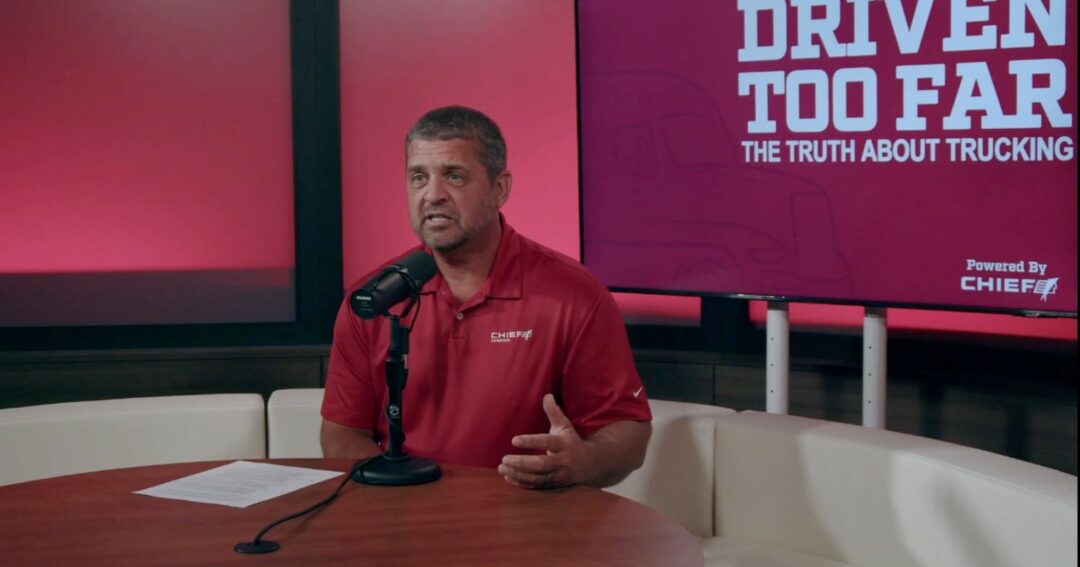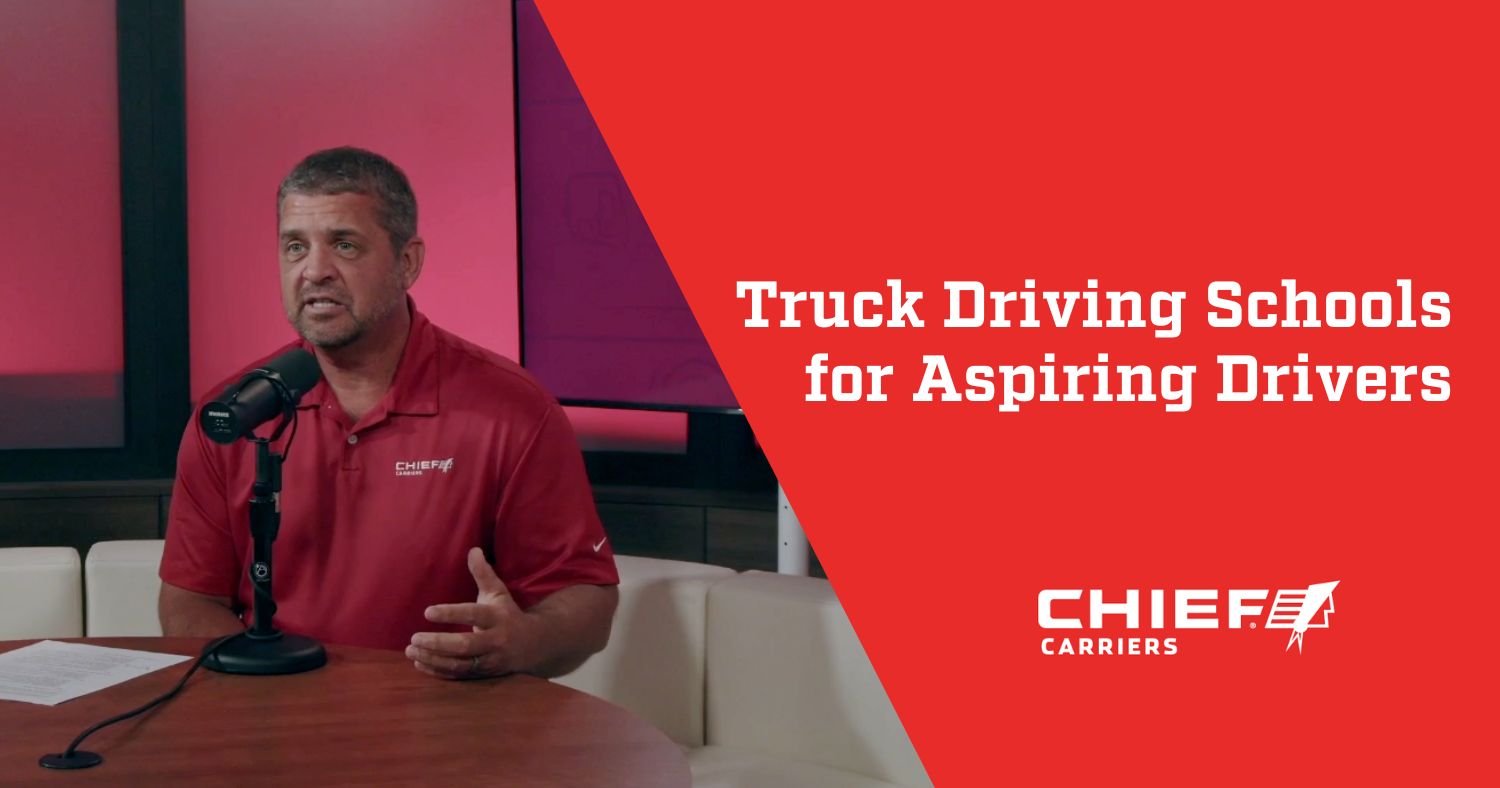A Guide to Truck Driving Schools for Aspiring Drivers
Choosing the right truck driving school is the crucial first step toward a rewarding career in the trucking industry. With various options available, from private schools to carrier-sponsored programs, it’s important to understand the pros and cons of each to make an informed decision.
In this Driven Too Far guide, we’ll break down the key features and considerations for each type of truck driving school so you can choose the path that best suits your needs and goals.
Specialized Training Trucking Schools
Whether you’re seeking specialized training or an affordable option, we’ll navigate the space of truck driving schools and set you up for success in the trucking jobs market.
Private Truck Driving Schools
Private truck driving schools are independently owned and operated, often found in larger cities or metropolitan areas.
Advantages of Private Truck Driving Schools
Yes, most private schools are great, and here are some of the perks:
- Specialized Training: One of the biggest advantages of private schools is their ability to offer specialized training in specific types of truck driving, such as tanker, flatbed, or hazmat hauling. This can be a great way to gain valuable skills and increase your marketability in the job market.
- Smaller Class Sizes: Private schools often have smaller class sizes than public options, providing a more personalized learning experience with increased opportunities for one-on-one instruction.
- Flexible Schedules: Many private schools offer night and weekend classes, making it easier for working students to balance their education with their existing commitments.
- Job Placement Assistance: Some private schools have established relationships with trucking companies and may offer job placement assistance to graduates.

Disadvantages of Private Truck Driving Schools
Of course, not all things are always as good as they seem. Enrolling in a private school can have its drawbacks.
- Higher Cost: Private truck driving schools have higher tuition costs than public options. It’s important to factor this into your budget and consider the potential return on investment.
- Varying Quality: The quality of instruction and equipment can vary significantly between private schools. Do your research, read reviews, and visit the school in person, if possible, to assess its quality and suitability for your needs.
- No Job Guarantee: Unlike carrier-sponsored programs, private schools don’t typically guarantee employment upon graduation. You’ll need to actively search for trucking jobs and compete with other graduates in the job market.
Public Truck Driving Schools: Affordable Option, But Less Flexibility
These colleges and technical schools often offer truck driving programs as part of their curriculum. These programs can be a great way to get started in the trucking industry at a more affordable price.

Advantages of Public Truck Driving Schools
- Lower Cost: Public schools generally have lower tuition rates than private schools, making them a more budget-friendly option for many aspiring truck drivers.
- Financial Aid: Community colleges often offer financial aid options, such as grants and loans, to eligible students, helping to offset the cost of tuition.
- Career Services: Many community colleges have career services departments that assist students with job searches, resume writing and interview preparation.
Disadvantages of Public Truck Driving Schools
- Larger Class Sizes: Public schools may have larger class sizes than private schools, which can lead to less individualized attention and instruction.
- Less Flexible Schedules: Most community college programs offer daytime classes only, which can be challenging for those with work or family commitments.
- Limited Specialization: Public schools typically focus on providing basic truck driving training and may not offer specialized courses in specific types of hauling.
By weighing the pros and cons of both private and public truck driving schools, you can make a more informed decision about which path is right for you.

Free Training with Carrier-Sponsored Truck Driving Schools
In recent years, many large trucking companies have started their own truck-driving schools. These programs often offer free or significantly reduced tuition in exchange for a commitment to work for the carrier for a specified period, typically one to two years.
Advantages of Carrier-Sponsored Schools:
- Free or Reduced Tuition: This is a major draw for many aspiring drivers, as it removes the financial barrier to entry into the trucking industry.
- Job Security: Upon graduation, you’re guaranteed a job with the sponsoring carrier, eliminating the stress of the job search.
- Paid Training: Some carriers even pay students a stipend or hourly wage while they’re in training, providing some income during the learning process.
Disadvantages of Carrier-Sponsored Schools:
- Limited Choice: The biggest downside is that you’re obligated to work for the sponsoring carrier for a set period. This limits your options and flexibility in choosing your employer immediately after graduation.
- Potential for Exploitation: While most carriers offer fair and competitive compensation packages, some may have less-than-ideal working conditions or pay structures. Do your research and ensure the carrier’s values and practices align with your own before taking sponsored classes.
- Limited Specialization: The training may be tailored specifically to the carrier’s operations and equipment, limiting your exposure to other types of trucking.

Choosing the Right Truck Driving School
With so many options available, how do you choose the right truck driving school?
First, evaluate the total cost of the program, including tuition, fees, and any additional expenses like housing and meals. Compare the costs of different schools and consider any financial aid or scholarship opportunities that may be available.
Then, choose a school that’s conveniently located and offers training on the type of equipment and terrain you’ll encounter in your desired region. If you plan to haul flatbed freight in mountainous areas, for example, look for a school that offers training in those conditions.
Research the school’s reputation thoroughly. Look for information on graduation rates, job placement statistics, and student reviews. Talk to other drivers or industry professionals to get their insights.
Go over the curriculum. Make sure it covers all the essential topics required to obtain your CDL and prepares you for a successful trucking career. Look for programs that offer a balance of classroom instruction and hands-on training.
If you need a flexible schedule due to work or family commitments, consider private schools or online options that offer night and weekend classes.
Lastly, make sure the school has well-maintained, up-to-date equipment for training purposes. This will ensure you’re learning about the same type of trucks and technology you’ll likely encounter on the job.
Job Placement Assistance
Inquire about the school’s job placement services and the types of carriers they partner with. A strong job placement program can help you transition smoothly into a trucking job after graduation.
Some schools may offer resume-building and interview preparation workshops to help you stand out in the job market. Take advantage of these resources to increase your chances of securing a job after completing your training.

Choosing the Right Truck Driving School
Choosing the right truck driving school is a crucial step in launching your trucking career, so take the time to carefully consider your needs, goals, and budget.
If possible, visit schools in person and ask lots of questions before making your final decision. The right truck driving school will not only help you obtain your CDL but also set you up for a fulfilling and successful career in the trucking industry.
Ready to embark on your truck-driving journey? Explore Chief Carriers’ recommended partner schools and consider a career with a company that values driver development and success.
Drive With a Company Who Cares
If you’re a driver looking for a trucking job with a company that prioritizes your safety and well-being, consider joining the Chief Carriers team.
We’re committed to providing our drivers with the support, training, and resources they need to succeed on the road. Visit our website to learn more about our carrier management philosophy and explore our current trucking job openings.
Ready to hit the road with a new carrier? Explore the available truck driver employment opportunities at Chief Carriers and submit your application today!
The Driven Too Fast Podcast is produced by Two Brothers Creative.

